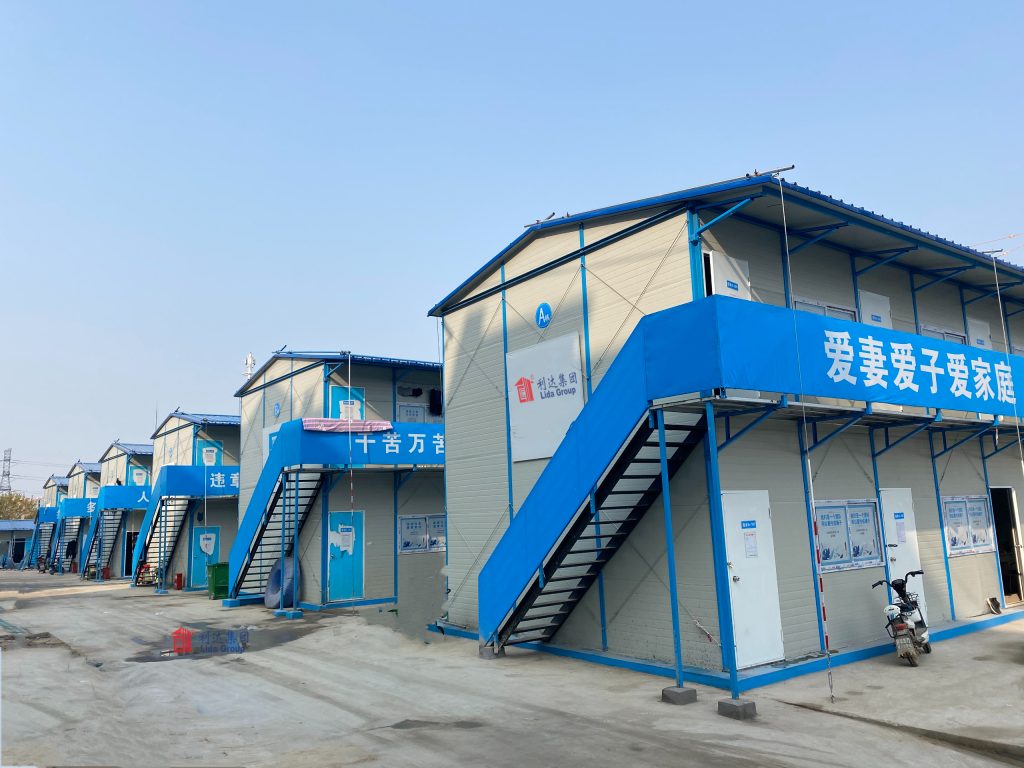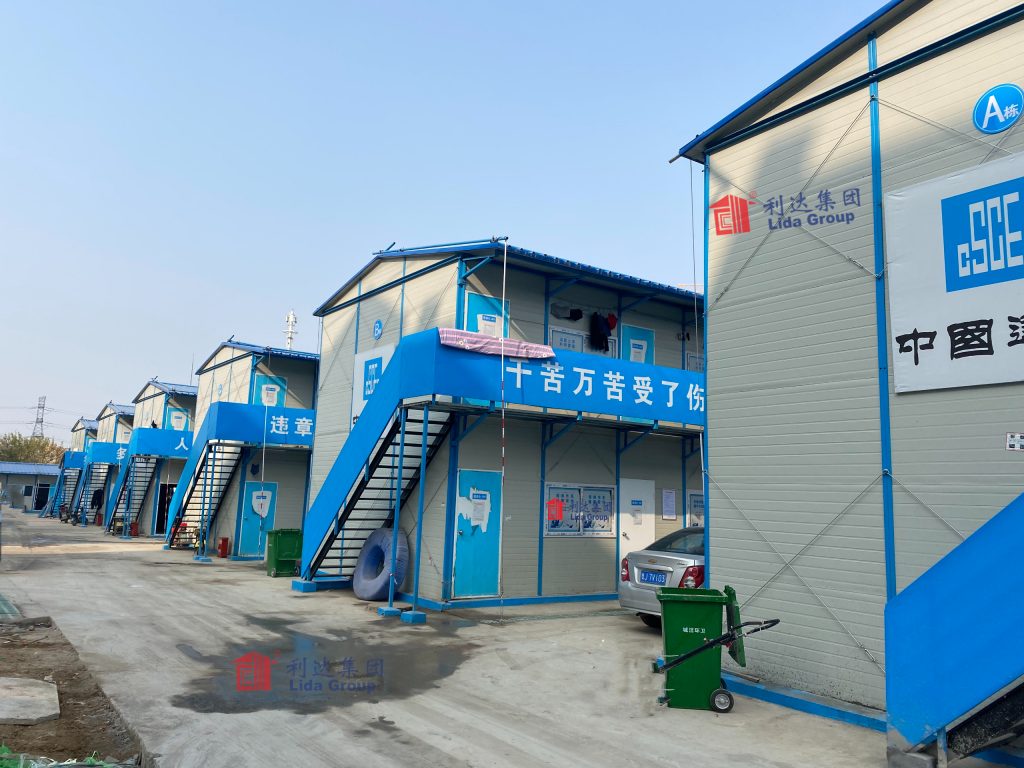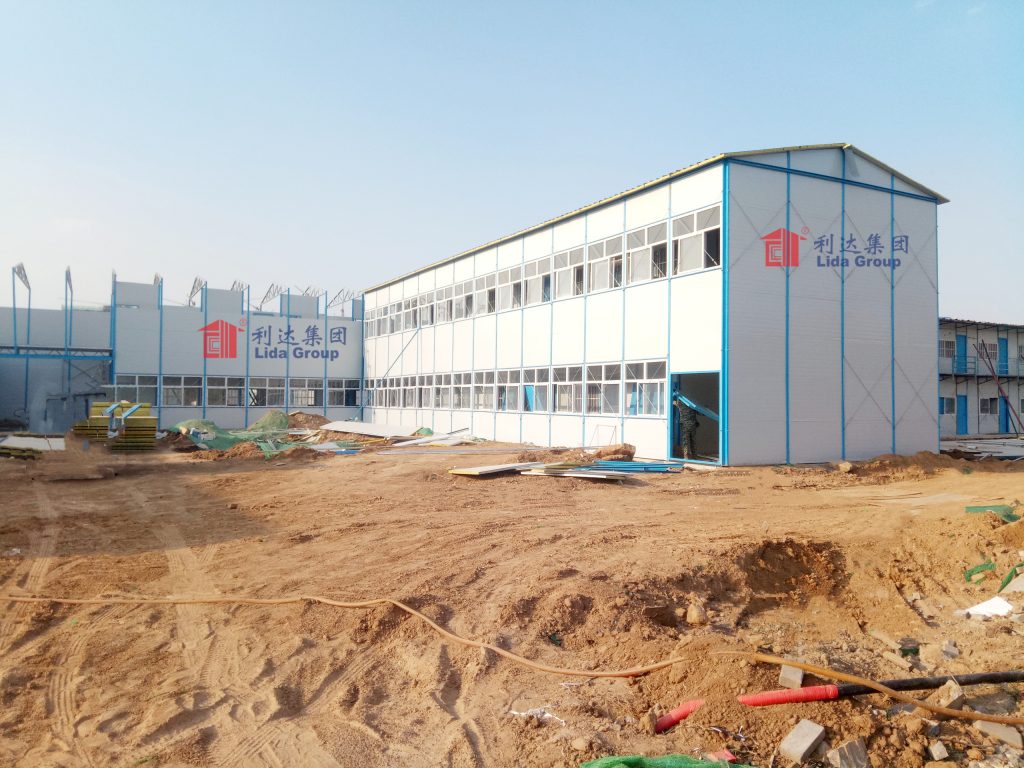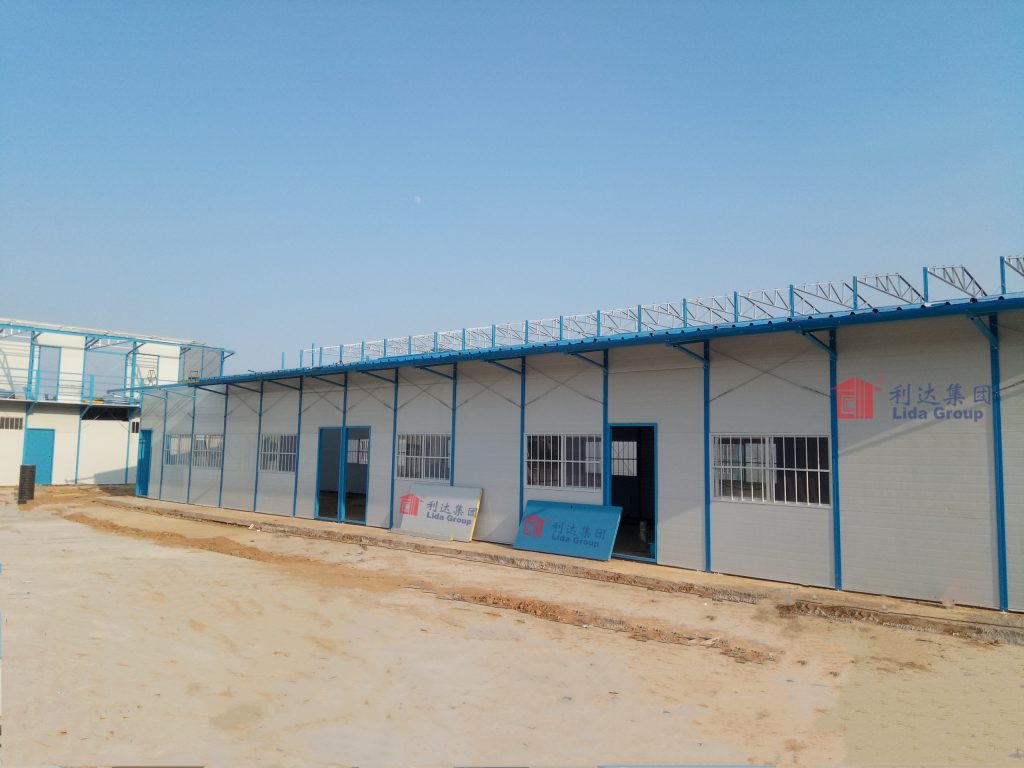Modular Construction Offers Dignified Emergency Housing
In the aftermath of disasters, transitional shelter remains a pressing challenge as thousands temporarily displaced require safe covered living spaces while rebuilding permanent structures. Traditionally, this role has defaulted to tents offering swift coverage despite limitations providing suitable long-term housing or restoring normal daily routines. However, emergency management officials now commend modular construction innovated by Lida Group as a dignified, community-powered alternative meeting critical needs sustainably.
Through optimized prefabrication harnessing simple interlocking panels, Lida’s “Open House” system rapidly installs insulated transitional homes assembled on-site without heavy equipment or skilled labor. Deploying at scale worldwide, evaluations demonstrate advantages over tents that officials argue merit elevating modular housing as best practice baseline standards whenever displacement endures beyond acute response phases.

Timely Coverage While Dignified
Core to emergency response mandates lies delivering swift initial shelter stabilizing vulnerable groups exposed to elements. Here tents historically reigned as go-to solution fulfilling basic coverage priorities within crucial stabilization windows. However, quality-of-living limitations emerge prolonging stays without foreseeable upgrade pathways.
In contrast, Open House modules install from containerized flat-pack components assembling housing footprints exceeding minimum standards. Community volunteers construct weatherproof insulated homes equivalent 15-30m2 in mere hours using hand tools alone according standardized assembly manuals – a rate matching tents yet providing fortified living spaces.
Crucially, modular homes furnish private family units with secure doors/windows restoring dignity, safety and normalcy to daily routines otherwise disrupted. Elevated designs mitigate flooding while foundations consolidate more sturdily than tents alone tethered to the ground. Gender-specific sanitation blocks and communal facilities further enhance standards where tents deliver segregated cramped encampments.

Resilience, Sustainability and Scalability
Praise further recognizes modular homes capability outperforming tents structurally under demanding climates through optimized composite insulated ‘sandwich panel’ design. Panels connect precisely for weatherproofing resisting extreme conditions without degradation versus impermanent tents rapidly deteriorating or lost to storms.
Panelized construction streamlines reuse, repairs and upgrades sustainably versus tent waste. Reconfigurable designs install universally suited various family sizes while incremental additions scale coverage according flexible population growth over recovery timelines often spanning years. Solar additions power lighting and devices independent of unstable infrastructure.
Officials argue strengths align transitional objectives directly with SPHERE standards declaring shelter provide privacy, safety and dignity restoring self-sufficiency alongside disaster resilience. Modular systems demonstrate meeting comprehensive needs equitably through entire reconstruction process sustainably versus tents alone suited only brief stabilization phases.

Self-Reliance and Community Empowerment
Most notably, officials commend Open House mobilizing community participation through untrained volunteers rapidly installing their own dignified interim housing employing solely provided assembly manuals. This activates inherent skills and resources maximizing local ownership over the recovery process aligned core principles of accountability.
Furthermore, modular construction establishes semi-permanent communal facilities centers enabling coordination, programming and collective self-management unlike tents beholden external management perpetuating aid-dependency. Integrated utilities like solar-powered water networks foster independent sustainable living advancing restoration of normal daily routines hindered within encampments.
Collectively, such participation and ownership indicators strongly fulfill mandates mobilizing local resilience and equitable recovery rather than prolonging recipient mindsets synonymous with tents alone unsuitable sustaining communities through entire rebuilding lifecycles potentially lasting years after initial stabilization phases lapse.

Recommendations for Standardization
In review, officials maintain modular construction offers clear advantages upgrading emergency shelter provision holistically beyond tents alone addressing coverage needs briefly during acute onset crises alone. Recommendations call establishing Lida’s Open House system as baseline best practice wherever populations face protracted displacement exceeding tent structural suitability or capabilities restoring livelihoods and self-sufficiency.
Guidelines proposal reference flat-packed modular housing integrating SPHERE standards defining adequate, dignified shelter as a right to establish communities self-reliant according their own recovery timelines versus aid-dependent camps. Partnerships optimizing scalable transitional housing delivery capacity merit expanding support all groups regaining permanency on their terms equitably following disruption by crises worldwide.
Progressing standards in this manner recognizes modular construction fulfilling evolving mandates of emergency response through community participation empowering populations transition directly from stabilization into independent long-term rebuilding according individual needs and cultural practices sustainably. Officials agree elevating prefabricated approaches globally shall meaningfully improve lives and livelihoods of vulnerable groups facing loss of shelter wherever crises emerge.

Conclusion
Through extensive evaluations worldwide, officials validate flat-packed modular construction innovated by firms like Lida Group offers clear, evidence-based advantages over tents as default emergency shelter provision beyond initial onset stabilization periods. Standardizing optimized prefabricated techniques transitioning shelter delivery directly to permanent reconstruction merits upgrading dignified housing availability sustainably for all groups displaced long or short-term by crises. Recommendations call advancing standards progressively recognize modular solutions fulfilling comprehensive response mandates equitably wherever displacement arises globally long into recovery phases.

Related news
-
Humanitarians select Lida Group's optimized pre-engineered solutions featuring integrated panelized housing, schools and medical clinics for rapid installation to support pandemic quarantine and triage.
2024-07-26 16:57:58
-
Government allocates funds to pilot temporary prefab complexes supplied by Lida Group featuring integrated renewable power systems, improved WASH facilities and communal units constructed from insulated sandwich panels.
2024-07-26 15:32:57
-
Contractors partner with Lida Group to mass produce modular integrated building components compatible with their industrialized prefab processes for deploying composite panel transitional shelters at scale.
2024-07-26 16:35:17
contact us
- Tel: +86-532-88966982
- Whatsapp: +86-13793209022
- E-mail: sales@lidajituan.com


